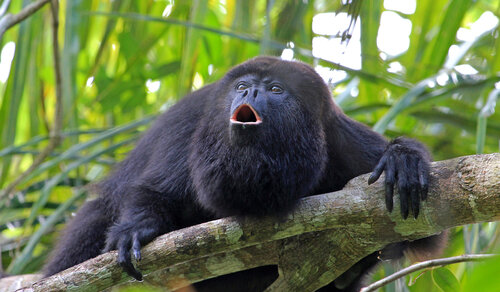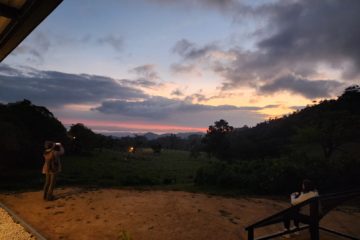
In the epochs predating the influx of both tourists and biologists to Costa Rica, the indigenous communities of the region held the esteemed position of the area’s premier wildlife custodians. Engaging in frequent, intimate encounters with the fauna, Costa Rica’s native peoples wove intricate mythologies around the country’s diverse wildlife long before it became a magnet for visitors. The Bribrí and Boruca communities, in particular, stand as the torchbearers of these rich beliefs, where animals not only occupy a central place in their legends but also play pivotal roles in healing ceremonies and the tapestry of their dreams.
Insights from the Ethereal:
Shamans, regarded as conduits between the earthly and ethereal realms, leverage the appearance of specific animals in dreams to unveil the potential destinies of dreamers. The nocturnal visitation of a vulture in the dream realm serves as an ominous harbinger of sickness, signaling the presence of a parasitic ailment. Conversely, a child who dreams of parrots is foreseen to metamorphose into a healer in adulthood. A pregnant woman’s dream involving a motmot hints at the delicate balance of life, potentially foretelling the risk of a miscarriage.
Ancestral Endowments:
Embedded within the fabric of traditional belief is the notion that the virtues of revered animals can be bequeathed to unborn children. Rituals involving the placement of a water opossum’s right foot in the dwelling of a pregnant woman aim to secure the child’s birth with enhanced fishing prowess. Similarly, adorning the hut with the claws of a northern tamandua is believed to impart resilience to the newborn.
The Menagerie of the Afterlife:
The Bribrí people associate certain animals, such as the common opossum and the naked-tailed armadillo, with the portents of death. The modern Spanish moniker for the latter, “madillo zopilote,” literally translates to vulture armadillo, embodying the ancient belief. In a spiritual sojourn, the silky anteater is perceived as the ethereal escort, carrying the souls of the Bribrí to their heavenly abode.
The Unlikely Hero’s Tale:
In the Bribrí creation myth, the vampire bat, typically viewed as ominous and violent, assumes the role of an unexpected hero. In a desolate world devoid of soil and vegetation, the bat descends to the earth’s core, feasting on the blood of a baby jaguar. This unconventional nourishment enables the bat to fertilize the barren land, paving the way for the Bribrí god Sibú to plant the world’s inaugural tree using the guano left behind.
Manifestations in the Juego de los Diablitos:
While the sands of time have eroded many Boruca traditions, the annual Juego de los Diablitos endures as a cultural tapestry. Participants, donned in animal masks, often depicting formidable creatures like jaguars or wise beings like owls and parrots, symbolizing the intrinsic qualities of the wearer. Both Bribrí and Boruca legends converge on the belief that select animals embody the spirits of deities, weaving a spiritual narrative into earthly existence.
Avatars of Deities:
In the realm of Boruca legends, quetzals bear the spirit of the formidable warrior Satú. Born to a great chief, Satú’s destiny was intertwined with a quetzal’s serenade on the day of his birth. A medallion crafted in the quetzal’s likeness bestowed upon Satú protection in battle. However, betrayal led to tragedy, with Satú’s uncle stealing the medallion and ending Satú’s life. The quetzal, loyal to the end, carried Satú’s spirit to the mountains, becoming the eternal guardian of the Bocura.
For the Bribrí people, the tapirs roaming the world encapsulate the essence of a tapir god, the sibling of Sibú. Legend recounts Sibú’s attempt to arrange a marriage for his sister, Tapir, foreseeing the impending misery. Refusing to succumb to fate, Tapir’s spirit was dispatched to Earth for the Bribrí to hunt. This sacred pursuit is enveloped in intricate ceremonies, where only specific Bribrí sects are authorized to engage in tapir hunting, with a designated woman per village skilled in the proper preparation. Violating these sacred rites invites the wrath of the Tapir god, underscoring the sanctity of these rituals in the Bribrí cosmology.

